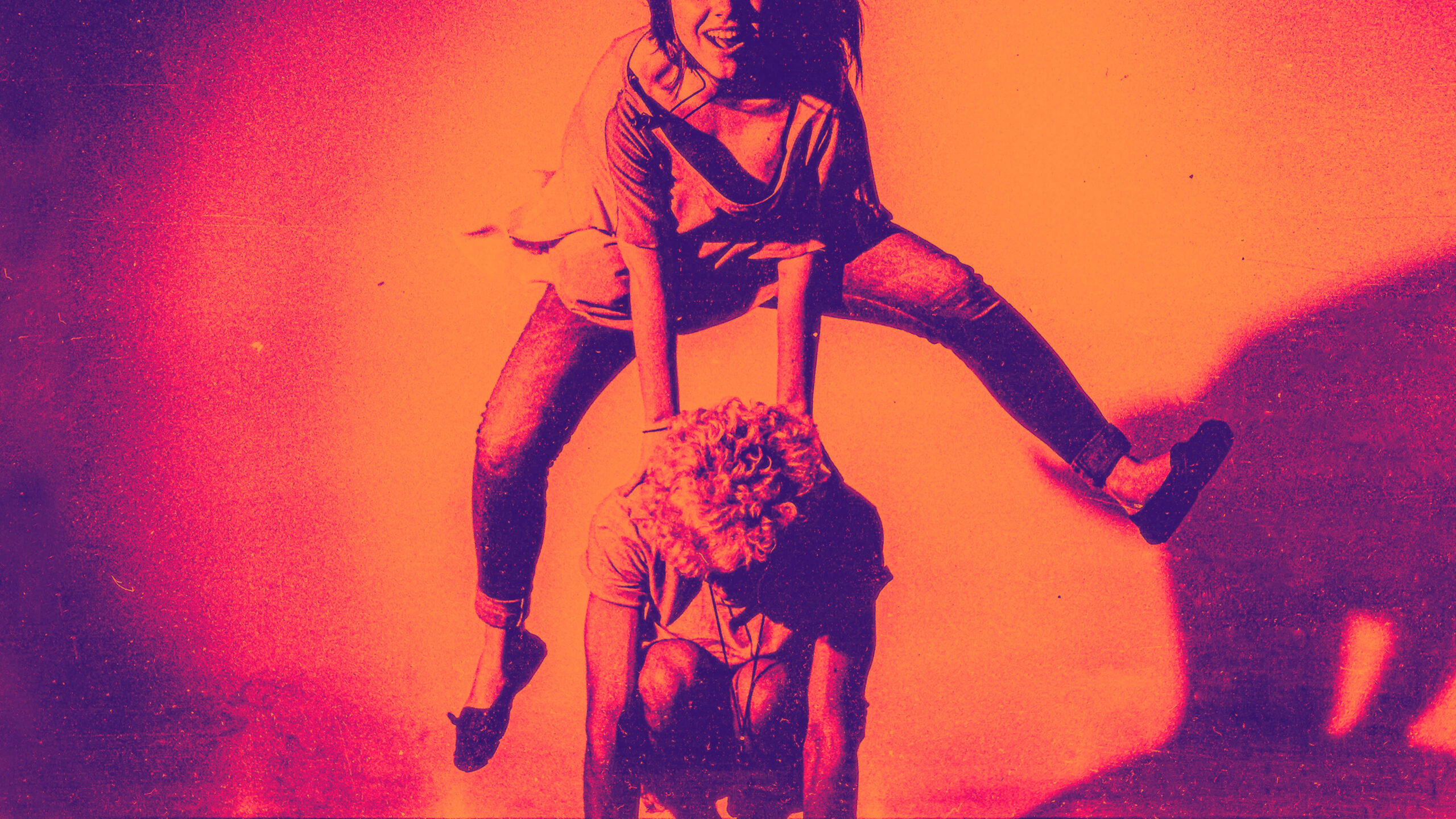Tali Sharot is a professor at University College London and the Massachusetts Institute of Technology. She mixes brain science with psychology and economics to better understand peoples’ choices, emotions, and beliefs. Her previous books include The Optimism Bias and The Influential Mind.
Cass Sunstein was administrator of the White House Office of Information and Regulatory Affairs for the Obama administration and is a professor at Harvard Law School. His previous books include Nudge and The World According to Star Wars.
Below, coauthors Sharot and Sunstein share five key insights from their new book, Look Again: The Power of Noticing What Was Always There. Listen to the audio version—read by Sharot—in the Next Big Idea app.
1. Your life is better than you think.
Here is the puzzle: most of us have some wonderful things in our life—perhaps a great job, a loving family, a comfortable house—but those things often seem to have limited impact on our daily happiness. Why is that?
It is not laziness or stupidity. It’s because of a basic brain feature called habituation. Habituation is our brain’s tendency to respond less and less to things that are constant or change gradually. You enter a bakery and after about 20 minutes you can’t smell the scent of warm pastry anymore. Your olfactory neurons simply stop responding. Just as you get used to the scent of fresh bread, you also get used to a whirlwind romance, to newfound wealth, or the view of the ocean. What was once amazing becomes mundane. You habituate to it.
But it’s not only the great things that we fail to notice. There are terrible things around us—sexism, racism, cracks in our personal relationships, inefficiencies at work—we get used to them, so we don’t try changing them.
Like the front page of a daily newspaper, your brain cares about what recently changed, not about what remained the same. So, how can we dis-habituate? How can we make what is thrilling on Monday still thrilling on Friday?
2. Break up good experiences.
A few years ago, I (Tali) was advising a tourism company. They wanted to know what makes people happiest on a vacation. We went out to resorts and surveyed people and found that holidaymakers were happiest 43 hours after arriving at a resort. Forty-three hours allowed them the time to settle in and focus on fun. But from that point on, habituation kicked in, and joy started dwindling.
When we asked the holidaymakers what they enjoyed the most, the word they used more than any other was “first”: the first view of the ocean, the firstcocktail, the first dip in the sea. Firsts were new and exciting. After that, things were still good, but not as good as those firsts.
To maximize joy, you need to create more firsts by breaking up good experiences into bits. For example, consider taking shorter but more frequent vacations.
Now think of a song you like: Would you enjoy it more if you listened to it continuously or with short breaks? Some 99% of people say no to breaks. Surprisingly, however, research shows that people did actually enjoy a song more with breaks. And they were willing to pay double to hear the music in concert. This is because breaks remove habituation, so the level of joy keeps bouncing back.
In the words of the economist Tibor Scitovsky, “Pleasure results from incomplete and intermittent satisfaction of desires.” So, do chop up the good stuff.
But, if you need to complete an unpleasant task (household chores, administrative work) complete them in one go. Habituation will help you motor through the yukky bits of life, making them feel less unpleasant. Swallow the bad whole but insert short breaks into pleasant experiences to increase pleasure.
3. Diversify your life.
Reflect on your life and consider whether there is any aspect of it you might like to change. It can be big or small. Maybe you’re contemplating changing your job, embracing a new relationship, or taking on a new hobby. How do you know if this change would do you good?
The answer depends on what you consider to be a good life. Most people say they want to be happy, smile, and laugh. These people may consider if a change would make them happier. People also want their lives to be meaningful. These people may consider if the change is purposeful.
But there is a third, often overlooked, ingredient for a good life: variety. People whose life includes diverse experiences, such as living in different cities, having held a variety of jobs, and interacting with diverse people, enjoy a richer psychological life.
When things are the same, we stop noticing what is most wonderful in our own lives. Shaking up our days allows us to dishabituate and see things anew. Change has value in and of itself.
For example, in one study by economist Steven Levitt, he asked 20,000 people to write down something they were considering changing in their lives and then flip a coin. Heads meant change, and tails meant stick with things as they are. Six months later, he went back to the same people. He found that those who flipped heads were 25% more likely to have made the change and ended up happier, on average.
You may want to consider mixing things up a bit. This is true for personal life but also should be a consideration in company policy. For instance, encouraging employees to rotate to another department occasionally may enhance satisfaction.
4. Nip it in the bud.
Bernie Madoff, when talking about his fraudulent Ponzi scheme, once said, “It starts out with you taking a little bit, maybe a few hundred, a few thousand. You get comfortable with that, and before you know it, it snowballs into something big.” Bernie is exactly right. A study I conducted with colleagues a few years ago showed that lying starts small and escalates, because the more we lie, the less bad it feels.
In our study, volunteers were given the opportunity to lie repeatedly in a financial task to gain money at the expense of another person. The volunteers started with relatively small lies, cheating by only a few cents, but slowly over the course of the experiment they lied by greater and greater amounts. We also recorded their brain activity and found that, at first, parts of the brain that signal emotion responded strongly in the volunteers when they lied. But with each additional lie, the emotional response was reduced—it habituated. Without the negative feeling, there was nothing to curb dishonesty, so people lied more and more.
Don’t treat small lies as harmless. If we let them slide, people may get comfortable lying and will do so more often. We need to nip lies in the bud, calling out even minor digressions at home and work.
5. Become a dishabituation entrepreneur.
The psychotherapist Jorge Bucay tells the story of how, when he visited the circus as a child, he was surprised to see that the big, strong elephant was chained by the foot to a small stake in the ground. Surely, the elephant could free itself easily. Why didn’t it?
Jorge learned later that when the elephant was a baby, it had tried desperately to set itself free but could not. Eventually, the elephant habituated to the limitations on its movements and so stopped rebelling against them. It perceived the chains as a fact of life.
Humans do the same. People adapt their expectations downward, such that bad conditions (like corruption or poor health) do not affect their happiness as much as they would otherwise. If you cannot have something, you might end up not wanting it at all. The economist Carol Graham, for example, found that in countries where people have less freedom, freedom matters less to people’s well-being because they don’t expect to have it. In poor countries, income matters less to people’s happiness. Such adaptation alleviates the pain—but also blunts the urge to act. It might cause a person to stay in a relationship or job that is less than ideal rather than alter their situation for the better.
The obvious puzzle is that social movements do emerge. We think this is because certain people don’t fully habituate to societal ills, so they call out the need for change. We call these people dishabituation entrepreneurs.
Perhaps they were exposed to something dishabituating that made existing practices no longer seem natural and inevitable. But we also believe that knowledge about habituation can produce dishabituation entrepreneurs. After learning about all the ways people habituate, you may be able to detect and focus on not-so-great features of your home life, work life, and society that you have overlooked. Sometimes, you are better off accepting things as they are because they truly cannot be altered. The hope, though, is that awareness of how our brain blinds us to the constant and expected will help you distinguish the chains you should accept from those you should try to break.
This article originally appeared in Next Big Idea Club magazine and is reprinted with permission.
Recognize your brand’s excellence by applying to this year’s Brands That Matter Awards before the early-rate deadline, May 3.




